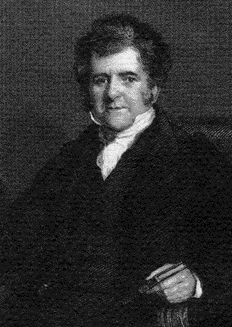<Back to Index>
- Physician Richard Bright, 1789
- Dramatist Prosper Mérimée, 1803
- Prime Minister of Italy Pietro Badoglio, 1871
PAGE SPONSOR

Richard Bright (28 September 1789 – 16 December 1858) was an English physician and early pioneer in the research of kidney disease.
He was born in Bristol, Gloucestershire, the third son of Sarah and Richard Bright Sr., a wealthy merchant and banker. Bright Sr. shared his interest in science with his son, encouraging him to consider it as a career. In 1808, Bright Jr. joined the University of Edinburgh to study philosophy, economics and mathematics, but switched to medicine the following year. In 1810, he accompanied Sir George Mackenzie on a summer expedition to Iceland where he conducted naturalist studies. Bright then continued his medical studies at Guy's Hospital in London and in September 1813 returned to Edinburgh to be granted his medical doctorate. His thesis was De erysipelate contagioso (On contagious erysipelas).
During the 1820s and 1830s Bright again worked at Guy's Hospital, teaching, practising and researching medicine. There he worked alongside two other celebrated medical pioneers, Thomas Addison and Thomas Hodgkin. His research into the causes and symptoms of kidney disease led to his identifying what became known as Bright's disease. For this, he is considered the "father of nephrology".
Bright had a special affection for Hungary and in 1815 he lived in Festetics Castle in Keszthely, where there is a large plaque: “To the memory of the English physician scientist and traveller who was one of the pioneers in the accurate description of Lake Balaton.”
On 11 December 1858, Bright became severely ill due to complications of heart disease and was unable to recover. He died in London aged 69.
Bright had two sons. The younger also became a physician; the elder, James Franck Bright, a historian.